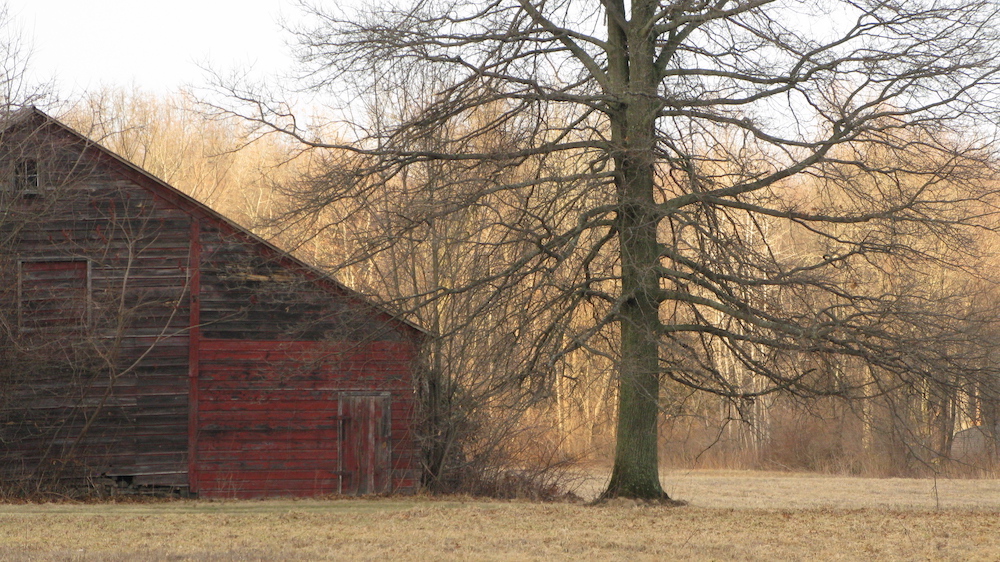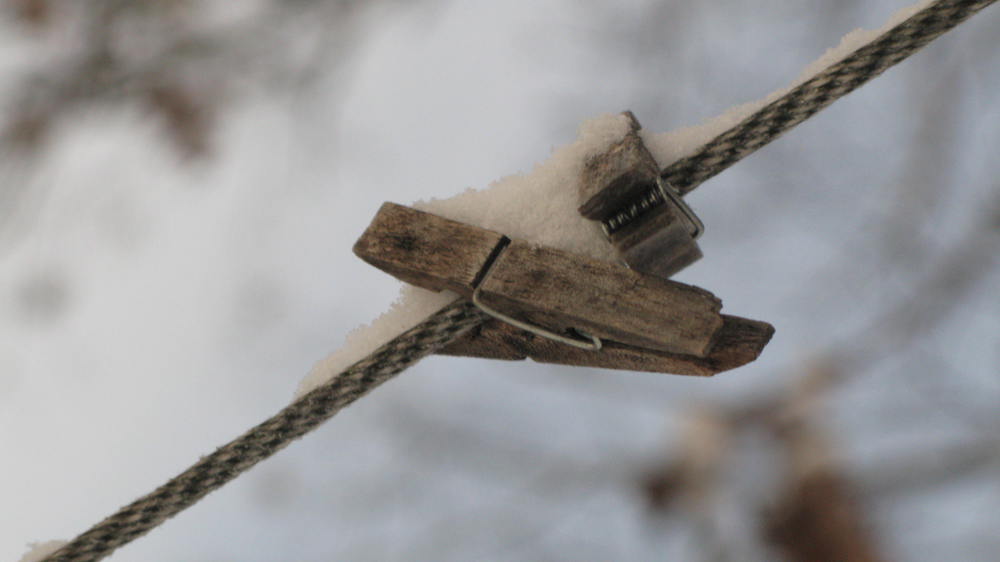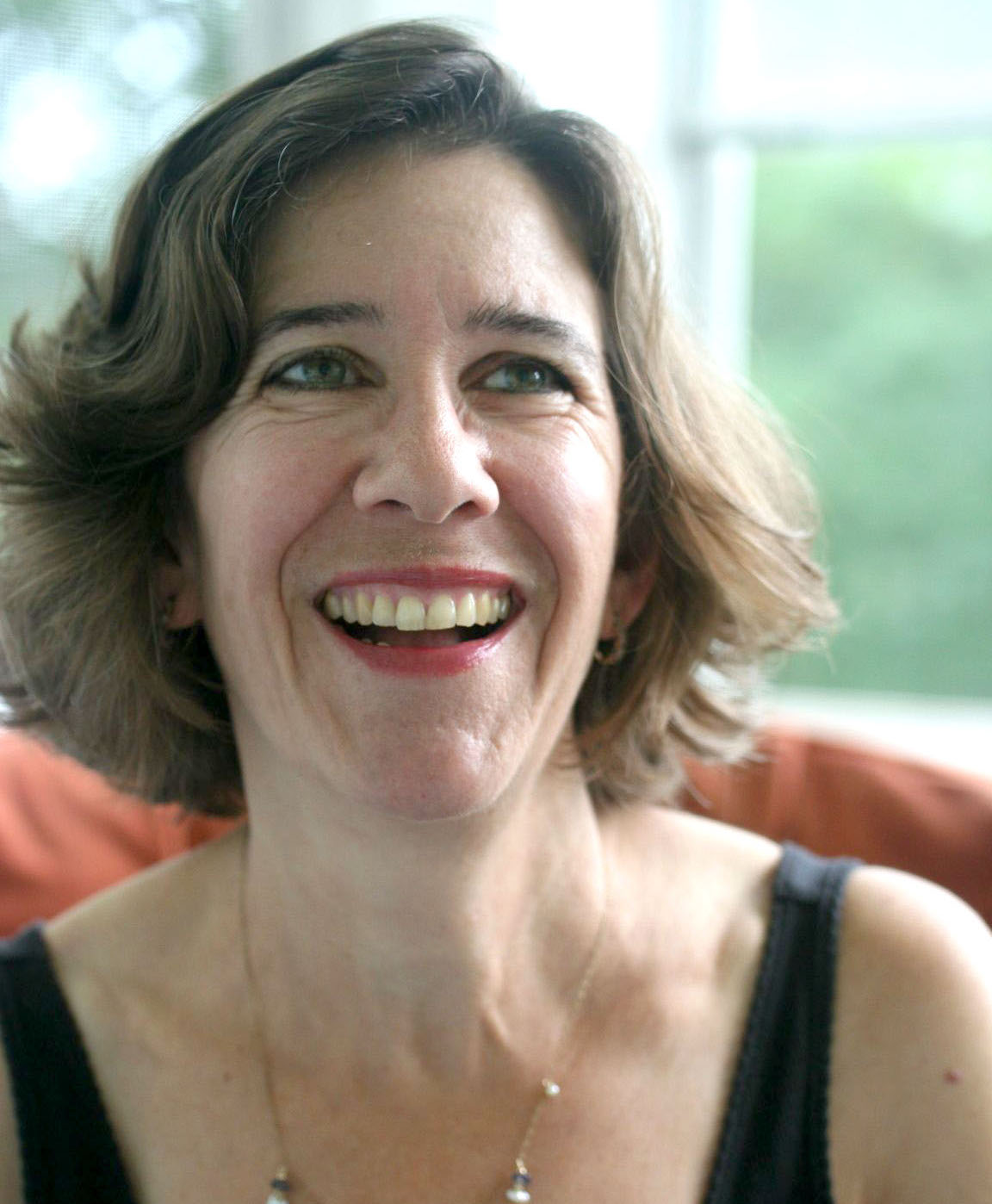Essay by Elizabeth Oness
Life’s Big Open Secret

It’s the end of July, and last night the dark crept up the back porch a full hour earlier than it had at the solstice. The phlox smells sweet at dusk, and the whippoorwills are quiet, though the coyotes will soon be loud and bold in the full dark. Even on the loveliest days, there’s a feeling like the poignancy of watching your toddler waddle across a summer lawn. Part of all this heart-crushing beauty is knowing that it won’t last forever.
If you live in a cold-weather climate like I do in Minnesota, you know getting ready for winter doesn’t take place in a day or a weekend—the preparation goes on for weeks. The deadline seems imminent, then recedes unexpectedly, as changeable as the weather here.
Yesterday, a friend came to look at some harness we had for sale. After looking over the harnesses, she saw the tractor that my husband was thinking about selling and said, “Yeah, I have to get something. Winter will be here before we know it.”
I smiled. Only in a cold-weather climate, when it’s ninety degrees in the shade, would someone be thinking of winter. But Gwen grew up on a farm; she knows.
Unlike putting a child to bed, where you hope that the kid will eventually fall asleep and give you some peace, putting the farm to bed has only the idea of peace, as it means chores have to get done: whether it’s 40 below or not, tools, equipment and round bales have to be put away, or there’s likely to be a lot of cussing and frustration. If something gets frozen in the wrong place, there’s no moving it until springtime.
Work doesn’t stop in the winter. Cows and horses eat a lot of hay and need to be watered. Chickens are easier to feed, but they need a place to roost and access to water. If the dogs are outside in the kennel, they would need a heated bucket as well.
Little things might seem obvious, but become a challenge: you can’t use hoses in the cold. Or you can, but dragging them into the house to thaw is a pain. Not to mention trying to coil a cold hose––there’s always a segment that resists being coiled the same way as the rest of it. Putting the farm to bed for the winter means doing everything to make the cold months easier, rather than harder.
Most of my chores are simple: things to pick up or fix that I’ve walked past for weeks because I always have something else in my hands. My to-do list keeps growing:
Sweep Asian beetles out of the dairy room
Take fans out of barn windows
Put electric heaters in watering troughs
Find electric bucket for foaling stall
Ask Chad to empty the manure spreader
Clear out barn aisle so round bales can be moved
Bring plastic hay covers to trash
Clean up finished garden beds
Pick spinach, chard, and kale
Mulch spinach beds
Fill holes outside riding ring
Drag ring while the tractor can still get up the hill
Carry hay twine to burn pile
Toss busted chicken waterers
Wrap up hoses
Bring in quilts
Bring in all liquids: Cowboy Magic, Fly spray, etc.
Bring in boots
Put tomato baskets in garden shed
Get cow bucket and fly mask from far field
Bring in hummingbird feeder
This is considered the “little” stuff. My husband has bigger chores on a scribbled list.
Preparing for winter, especially when my husband is away, makes me feel melancholy and autumnal. Underscoring all that, I learned that a friend was being treated for pancreatic cancer. She’s still in the phase of feeling there’s hope, but going by my husband’s experience nursing another friend through the last year of her life, we know where this is going.
The older I get, the more I realize that life is one big open secret. We don’t know how many seasons we’ll get. A friend posted something on Facebook with a reference to a boy I knew in high school. He kissed me once. Not very well. A Google search revealed that he died in 2006. Although I tend to take it for granted that everyone who is my age, 58, is still growing and aging alongside me, in a life parallel to, but different from my own, I know deep down this isn’t true.
It’s hard to fight the blues in autumn. The irregular hills and valleys are achingly beautiful, something almost anyone would want to share. Statistically, women outlive men, and sometimes I can’t help wondering how I would manage this place without Chad. I hope that would be many years from now, but in autumn, it’s hard to avoid thinking about it. A farm has to be tended. Some of the chores require skill with heavy equipment—skid steers and tractors that I can only drive in a pinch, and only in a straight line, on a flat surface. I’d never try to mow our hilly pastures with the brush hog, and our skid steer scares me, with its rollover cage and bar, not unlike the ones in roller coasters, to hold you in place if it tips over. There are lots of workarounds on a farm, but even the Amish get outsiders to move round bales for them these days.
In late January, on my husband’s birthday, I can say we’ve prepared pretty well. As the days get longer, the cold grows stronger. Yes. It was ten below last night, and it felt too cold to go out and feed this morning, but the trough heaters are working, the animals have their round bales, the barn cats are sleek, and the chickens are roosting in places they should not. Given the cold, it’s not something I’m going to fuss about. It’s time to sit by the woodstove and gather the energy to feel restless. Time to feel grateful for the expectations of the coming season.

Art Information
- Photos of barn and clothespins on clothesline © Brittney Fishman; used by permission.
 Elizabeth Oness is a writer and musician who lives on a biodynamic farm in southeast Minnesota. Her poems and stories have appeared in the Georgia Review, Gettysburg Review, Glimmer Train, Hudson Review, Tahoma Literary Review, and other magazines. Her stories have received an O. Henry Prize, a Nelson Algren Award, and the Crazyhorse Fiction Prize. Her books include: Articles of Faith, Departures, Twelve Rivers of the Body, Fallibility, and Leaving Milan. Elizabeth directs marketing and development for Sutton Hoo Press and is a professor of English at Winona State University.
Elizabeth Oness is a writer and musician who lives on a biodynamic farm in southeast Minnesota. Her poems and stories have appeared in the Georgia Review, Gettysburg Review, Glimmer Train, Hudson Review, Tahoma Literary Review, and other magazines. Her stories have received an O. Henry Prize, a Nelson Algren Award, and the Crazyhorse Fiction Prize. Her books include: Articles of Faith, Departures, Twelve Rivers of the Body, Fallibility, and Leaving Milan. Elizabeth directs marketing and development for Sutton Hoo Press and is a professor of English at Winona State University.
Photo of Elizabeth Oness by Erica Thibodeaux.
